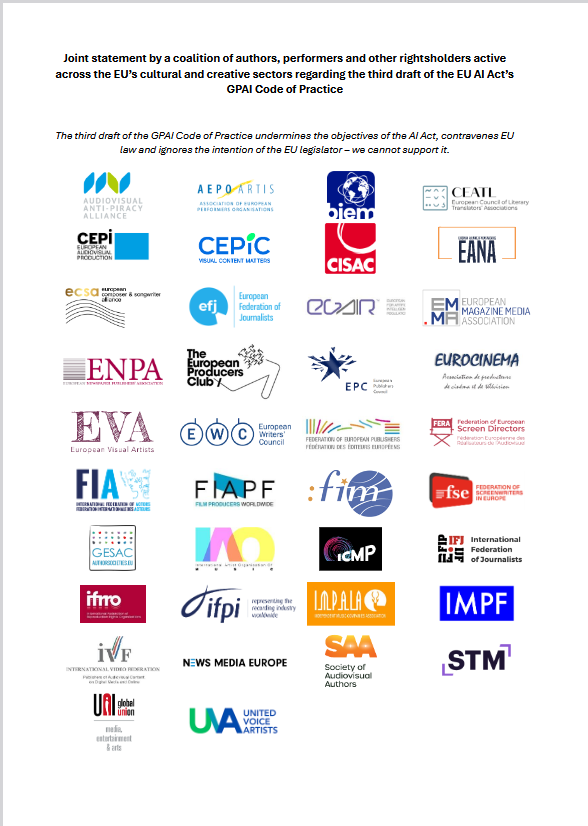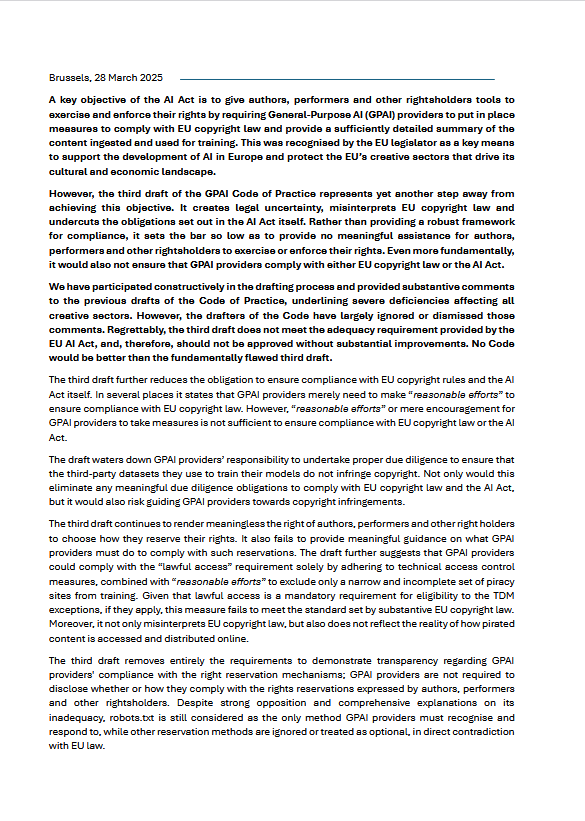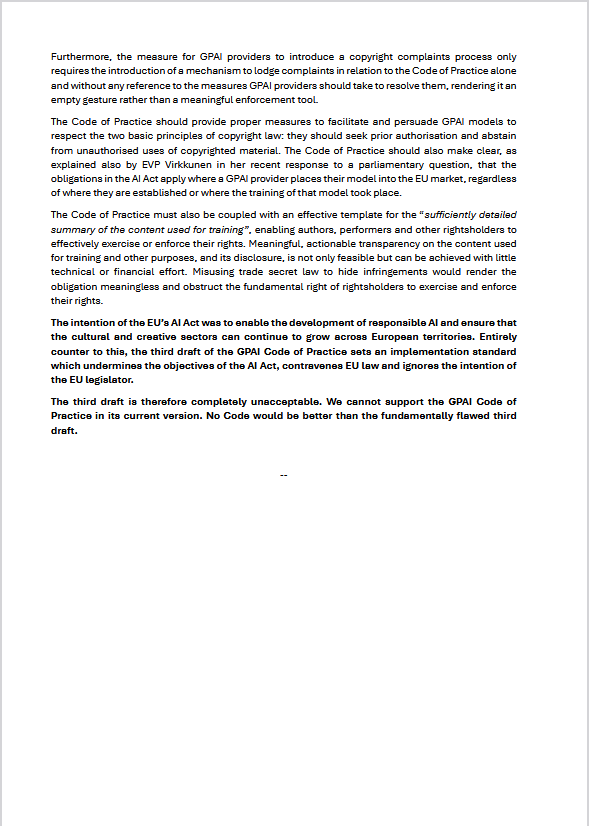The third draft of the General Purpose AI Code of Practice does not receive support by the Enlarged Coalition of Authors, Performers and Rightsholders, which includes organisations from across the EU's cultural and creative sectors. In a joint statement, they say that it “undermines the objectives of the AI Act, contravenes EU law and ignores the intention of the EU legislator”, and therefore they cannot support it.
As the Coalition points out, the third draft further weakens the obligation to ensure compliance with EU copyright law and the AI Act itself. It states in several places that GPAI providers must make "reasonable efforts" to ensure compliance with EU copyright law. However, according to the rights holders, "reasonable efforts" or merely encouraging GPAI providers to take action is not sufficient to ensure compliance with EU copyright law or the AI Act.
The statement argues that the draft waters down the responsibility of GPAI providers to carry out proper due diligence to ensure that the third-party datasets they use to train their models do not infringe copyright. "Not only would this eliminate any meaningful due diligence obligations to comply with EU copyright law and the AI Act," the coalition says, "but it would also risk guiding GPAI providers towards copyright infringement," it concludes.
The AI Act aims to give authors, performers and other rights holders the tools to exercise and enforce their rights by requiring General Purpose AI (GPAI) providers to take measures to comply with EU copyright law and to provide a sufficiently detailed summary of the content that is ingested and used for training. “This was recognised by the EU legislator as a key means of supporting the development of AI in Europe and protecting the EU's creative sectors, which drive its cultural and economic landscape” the Coalition says.
Rightsholders note that the Code of Practice should provide for appropriate measures to facilitate and encourage GPAI models to respect the two basic principles of copyright law. First, providers should seek prior permission and refrain from unauthorised use of copyrighted material. Second, the Code of Practice should make clear that the obligations under the AI Act apply when a GPAI provider places its model on the EU market, regardless of where it is established or where the training of that model took place.
In addition, according to the statement, the Code of Practice must also be coupled with an effective template for the “sufficiently detailed summary of the content used for training”, enabling authors, performers and other rightsholders to effectively exercise or enforce their rights.
"The intention of the EU's AI legislation was to enable the development of responsible AI and to ensure that the cultural and creative sectors can continue to grow across European territories," the statement notes, adding that to this end, "we have participated constructively in the drafting process (of the Code of Practice) and provided substantive comments on the previous drafts, underlining severe deficiencies affecting all creative sectors."
The Coalition points out that “the third draft continues to render meaningless the right of authors, performers and other right holders to choose how they reserve their rights. It also fails to provide meaningful guidance on what GPAI providers must do to comply with such reservations”. As the statement concludes “We cannot support the GPAI Code of Practice in its current version”.
The joint statement was signed by a coalition of 38 organisations representing authors, performers and rights holders, including Fera, Aepo - Artis, International Federation of Journalists, International Federation of Actors, European Visual Artists, United Voice Artists, European Writers Council, European Council of Literary Translators’ Associations, Federation of Screenwriters in Europe, European Composer and Songwriter Alliance and others.
--
Photo credit: Mike MacKenzie
Photo
source











